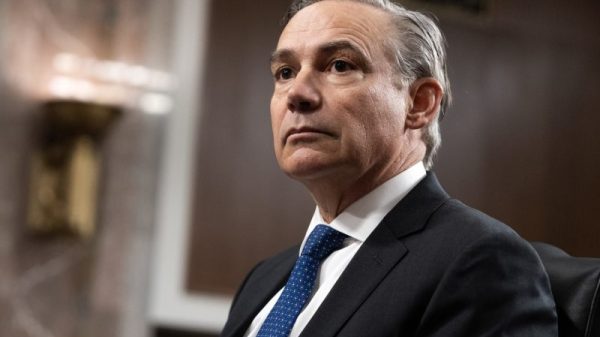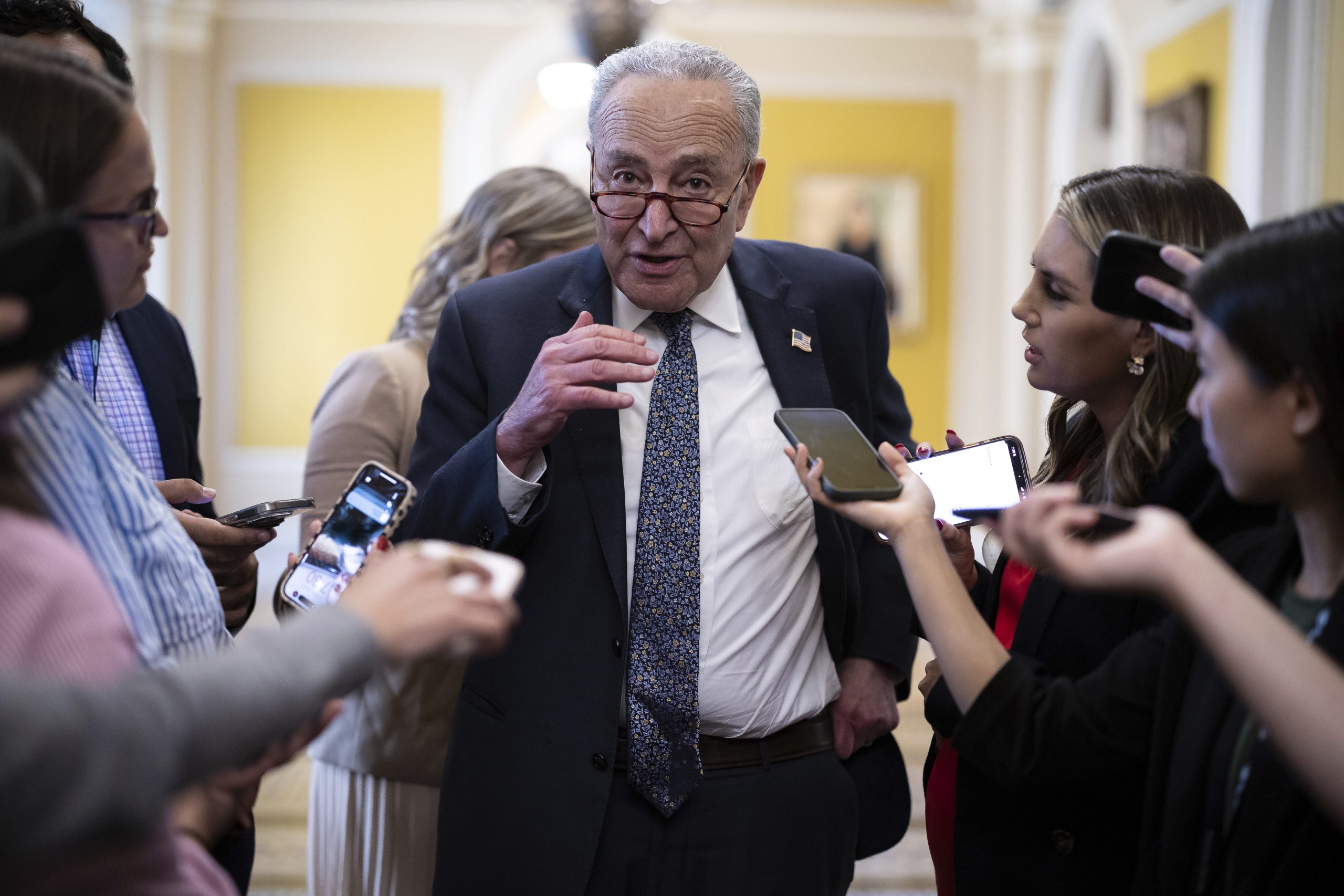Senate Democrats have been grappling for months over how to show their voters they are standing up to President Donald Trump.
Now they have their chance. They are facing key decisions this week over how readily they should cooperate with Republicans to advance Trump nominees and bipartisan spending bills. And an even bigger test looms on the horizon: a Sept. 30 shutdown deadline.
It’s all workaday congressional business, but dealing with it has become more politically fraught under the second Trump administration. The internal debate between members who want to resist and those who want to cut deals has been simmering, and it played out both behind closed doors and out in public view this week.
The tensions spilled out on the Senate floor Tuesday evening when Sen. Cory Booker of New Jersey accused fellow Democrats of being “complicit” in Trump’s actions and urging them to “have a backbone,” fueling anger among some of his colleagues.
On Wednesday, Democratic senators used a closed-door lunch to hash out what their strategy should be heading into the fall funding fights, where they are hoping to avoid a repeat of the shutdown drama that played out this spring — ending in internal divisions and recriminations.
“The Republicans can roll us once, but we sure as hell shouldn’t let them roll us a second time,” Sen. Elizabeth Warren (D-Mass.) said in a brief interview. Warren added she was “deeply skeptical” of spending negotiations after Republicans approved a $9 billion clawback of funding at Trump’s request this month.
But it was Booker’s fiery protest — targeting a package of bipartisan police-focused bills that had been shepherded by his Democratic colleagues on the Senate Judiciary Committee — that underscored the tension over his party’s approach to Trump.
“Democrats need to learn to fight, and fight him, and stop him from hurting people,” he told reporters shortly after blocking several bipartisan bills. “There’s a lot of us in this caucus that want to fucking fight, and what’s bothering me right now is we don’t see enough fight in this caucus.”
The burn-it-down crowd might be a minority inside the caucus, but those words echo what many progressive activists, and some congressional Democrats, have been urging since at least March, when Minority Leader Chuck Schumer joined with nine Senate Democrats to help advance a GOP-written funding bill to avoid a shutdown they worried would only empower Trump.
The immediate stakes for Democrats’ fight-or-flight dilemma are relatively limited — the fate of their summer recess, to be precise.
Republicans want Democrats to agree to accelerate the confirmations of dozens of the roughly 150 pending Trump nominees before they allow senators to leave Washington. Democrats are seeking a “quid pro quo,” in the words of Minority Whip Dick Durbin of Illinois. The main idea under discussion is getting the White House to release frozen agency funding while still holding up some of Trump’s most controversial picks.
But some Democrats like Warren are questioning why they should agree to help the Trump administration fill its ranks at all. Booker’s outburst is hanging over the decision (though even he showed pragmatism this week, allowing two of the police bills in the larger package to advance).
The bigger fight, senators agree, will come in September, and some Democrats are already warning that they need to stiffen their spines — and get their strategy settled — ahead of a potentially messy shutdown brawl.
They aren’t there yet. But Schumer convened another special caucus lunch on Wednesday to talk through potential September strategies.
One idea Democrats are discussing would be to secure a commitment from Republicans that they would not pursue additional funding clawbacks following this month’s successful “rescissions” votes, according to a person granted anonymity to disclose the private deliberations. There’s plenty of skepticism that they can trust the GOP to stick any deal, however, and they are also discussing possible policy demands, such as preserving Affordable Care Act tax credits that are set to expire at the end of the year
“We’re having, I think, very productive discussions about what our priorities are,” Sen. Tim Kaine (D-Va.) said after leaving the caucus lunch Wednesday. He added that, based on the discussion, Democrats “are going to have a pretty good consensus position.”
As they hash out demands for the nominations and shutdown battles, Senate Democrats are trying to show some fight in smaller ways. They continue to try and put the GOP on the back foot regarding the so-called “Epstein files” — the yet-to-be released investigative records pertaining to the late sex offender Jeffrey Epstein.
Schumer and Homeland Security and Governmental Affairs Committee Democrats invoked a little-known law this week to try to force the administration to hand over the files — a move almost certain to be spurned by the Trump administration.
Schumer insisted during a news conference Wednesday that the letter to Attorney General Pam Bondi was “not a stunt” and suggested Democrats could sue if the Justice Department does not comply.
“That’s what accountability looks like. This is what oversight looks like,” Schumer told reporters, before sidestepping a question about whether Democrats would use their leverage on nominations and spending to pursue the Epstein matter.
Democrats are also working through whether they want to use the Senate’s government funding process this week to show Republicans they are willing to work with them. Senate Majority Leader John Thune is hoping to advance a small subset of the fiscal 2026 spending bills ahead of the summer recess, and many Democratic appropriators are ready to play ball. Other Democrats want to be more combative, with some floating an amendment related to Epstein.
Asked if she believed Democrats are appropriately fighting back by participating in the funding process, the top Democratic appropriator, Sen. Patty Murray of Washington, said, “Absolutely. We are working really hard to make sure that our priorities are in these bills.”
Booker, for his part, said Wednesday he had “very strong feelings” about how the caucus should handle the overall funding fight.
But he said “the last thing I would do is discuss it.”
Calen Razor and Jennifer Scholtes contributed to this report.






















